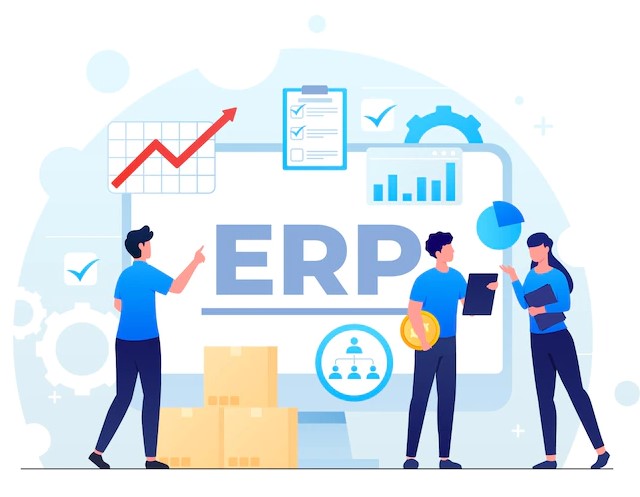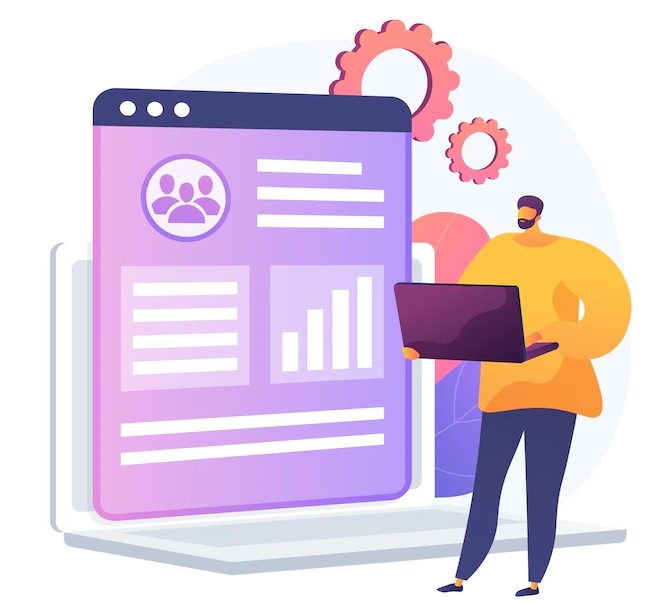
How flexible is an ERP system for business processes?
April 18, 2022
Table of contents
Quick Access

Both the world of technology and business are very changeable. While every day there is a different technological advance, an update of some platform, on the other hand, businesses are always adapting and growing to continue achieving goals. For this reason, it is very important for businesses to have flexible, dynamic and scalable platforms that can adapt to any business context.
This is a fundamental aspect to evaluate in an ERP software, the flexibility that the platform presents. Many platforms have a variety of customization options that perfectly fit business needs, but in other cases, companies will need a developer if they want to further customize systems. This already depends on the company and the particular case.
“The architecture of an ERP must be solid, since changes are constant in the business world. Companies change every day according to the environment, as well as their needs. An ERP needs to deal with the constant changes that result from business requirements and if the platform does not respond to these changes, the company could look to implement another ERP platform”, commented ERP specialist Jyothi Mohan in a forum of Quora.
What characterizes a flexible ERP
- That responds to the growing demand for business resources.
- That can be used from mobile applications and in the cloud.
- Have advanced customization options.
- That the user interface is intuitive, easy to use and available in several languages.

In essence, when we talk about a flexible ERP, we mean a platform that is responsive to change: “A flexible cloud-based ERP allows a company to easily change and extend the business process across the enterprise. A flexible ERP also significantly reduces and eliminates the need for cumbersome manual processes and workarounds to meet business changes,” says a QAD article.
Aspects that can affect flexibility
Beyond the functionalities that an ERP system can offer, there are situations from which companies cannot escape. For example, an ERP can be very flexible but at the same time this platform has to adjust to business processes and organizational change, they explain in the Abas-ERP portal, which can precisely put said flexibility to the test.
“In essence, ERP system flexibility and business adaptability are intertwined with each other. If you're locked into a legacy ERP suite because your system is behind on updates, then you lose flexibility. A truly elastic ERP solution will enable easier daily changes and allow you to avoid lock-in. This is only possible with retrofitted systems built specifically with flexibility in mind,” they added in the same article.

Are ERPs flexible?
The answer is yes. ERP software, regardless of whether it is licensed or open source, is a totally flexible and agile platform when it comes to adapting to business and environmental changes.
Internally, within the company, collaboration between all team members increases since all departments have access to data in real time, without intermediaries and without having to jump from one platform to another. In the ERP, all business information is concentrated.
This access to information also offers directors and managers a broader vision of the management they are leading, which leads to more accurate and timely business decisions based on real-time data.

ERPs are flexible when they allow "complementing the operation of the ERP with complementary systems that are perfectly integrable natively and at a lower cost, through a modular growth of other functionalities and through integration with other software from the manufacturer itself", they explained in the DataDec portal.
A flexible ERP must also allow “custom adaptations made only by the software manufacturer, but also custom adaptations made by companies other than the manufacturer”.
Now that you have a reference of what a flexible ERP should be like, evaluate these characteristics very well before implementing software of this type in your company. Make sure you have an expert technology partner to guide you in this step you will take. Do you have any doubt? Contact us!
We recommend you on video
Related Blogs
-7.24.17-p.m.png)
IT staff augmentation consulting: Questions to ask
-7.24.17-p.m.png)
Preguntas durante una consultoría de IT staff augmentation
-7.03.25-p.m.png)
Beneficios que aporta la IA a las compañías financieras
-3.18.43-p.m.png)
Servicios de IA que puedes contratar para tu negocio
-8.46.43-p.m.png)
Compañía de desarrollo de software potencia operaciones
-8.08.37-p.m.png)
